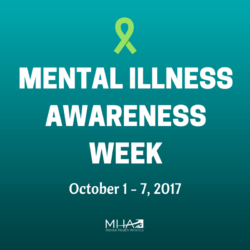Depression, bipolar disorder, ADHD, schizophrenia and obsessive compulsive disorder – mental illness takes multiple forms. But one affected group of people often remains lesser known: men and women who suffer from mental illness associated with a movement disorder.

Patients with Parkinson’s, essential tremor, Huntington’s disease and other movement disorders have recognizable physical symptoms such as trembling and loss of balance. But these physical manifestations also can be accompanied by psychological conditions. As many as 40 percent of people with movement disorders also have a mental illness.
“People can have a narrow idea of what mental illness looks like,” explained Jessica Kennedy of Mental Health America. “They may not realize that, behind the physical effects of a movement disorder, these men and women are fighting for their mental health as well.” Mental Health America is a member of the Movement Disorders Policy Coalition, an advocacy organization promoting patient access to appropriate treatment.
The relationship between movement disorders and mental illness is complex. Parkinson’s patients, for example, sometimes develop psychosis. It may stem from Parkinson’s, medication used to treat Parkinson’s, or both. Conversely, treatment for mental illness may itself trigger a movement disorder. Tardive dyskinesia, for instance, involves involuntary movements of the face, mouth, torso or limbs. It can stem from use of antipsychotics. Anxiety and depression may also affect patients with movement disorders.
The co-existing conditions make patients’ lives – and their treatment – complicated. Few FDA-approved treatments for movement disorders exist. Those that do may be expensive, leading health plans to require extensive prior authorization processes or high co-payments. Patients, their caregivers and their health care providers face complicated decisions about which condition to address first and how to weigh treatments’ side effects.
Movement disorders’ visible symptoms often provoke stigma, making the added burden of mental illness especially debilitating. Mental Illness Awareness Week and other initiatives can help bring critical attention to the link between mental illness and movement disorders, raising awareness about stigma, patient experiences and the need for accessible treatments.
People with movement disorders or their caregivers can complete a free, anonymous and confidential mental health screening at www.mhascreening.org.


